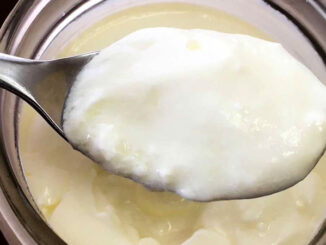
What types of Kefir exist?
There are two main types of Kefir: milk Kefir and water Kefir. They are made with different grains, or SCOBY (bacterial colonies), and grow in different environments. Water Kefir grows in sweetened water, while milk Kefir grows in natural (cow, sheep, or goat) milk. While both water and milk Kefir are potent probiotics, the content of probiotic strains in milk Kefir is significantly higher.
Where Kefir comes from?
Historically, Kefir originates from the Turkic, Mongolian, and Tibetan peoples inhabiting Central Asia. Today it is prevalent in Russia and the former Soviet republics. Still, it has been introduced in Western Europe and the United States no earlier than the beginning of the 21-st century.
Can I buy Kefir?
Yes. You can buy either ready-made Kefir drinks or dried Kefir grains from most convenience stores in the US or Amazon. However, the best way to obtain a really high-quality kefir drink is to make it at home by simply mixing the Kefir grains with fresh milk and leaving them to ferment. Kefir grains can be easily obtained from another Kefir user, as grains constantly multiply, and most kefir “addicts” usually have them in excess.
Which Kefir is best?
Or course, which Kefir might be best for you depends on your taste. Still, data show that milk Kefir has considerably more powerful probiotic properties and health benefits than water kefir.
Is Kefir gluten-free?
Yes, both milk and water Kefirs are 100% gluten-free. Although the cauliflower-like formations of Kefir are called “grains”, they are symbiotic microbial colonies. They are not related to cereal grains like wheat, rice, oats, cornmeal, or barley. The drinks obtained from the fermentation of both water and Kefir grains are also fully gluten-free.
Is Kefir lactose-free?
While water Kefir is 100% lactose-free, milk Kefir is not completely lactose-free. However, since most of the lactose in milk gets metabolized and converted into lactic acid during fermentation, the milk Kefir is better tolerated by lactose-intolerant people.
Can Kefir make me sick?
The first uses of Kefir may put your stomach in “overdrive mode”, which may lead to temporary discomfort symptoms like bloating, nausea, cramping, or even diarrhea. These symptoms are, however, rare and usually fade away once the stomach adapts to Kefir.
Does Kefir have contraindications?
Kefir is one of the few milk products that virtually has no contraindications, except for people with compromised immune systems. These are the cases of people with autoimmune diseases or undergoing immunosuppressive treatment. Kefir may also not be beneficial for people with increased acidity levels in the stomach.
Is Kefir safe while pregnant or breastfeeding?
Kefir is a major supplier of probiotics and calcium to the woman’s body and is considered safe in pregnancy and breastfeeding periods. Kefir may also be helpful in some conditions especially related to pregnancy, like nausea, weight gain, and thrush. Expectant and breastfeeding mothers should still be cautious and take the step-by-step approach with the first Kefir uses.
Is Kefir suitable for vegans?
While water Kefir is fully suitable for vegans, classic milk Kefir is not supported by vegan diets. Kefir can, however, be also made of non-dairy types of milk like soy milk, coconut milk, almond milk, or cashews milk that might make the final product suitable for vegans.
Can Kefir be frozen?
Although sometimes freezing Kefir is practiced to store Kefir grains for longer periods, we would not recommend it. Kefir grains contain a lot of water, and at low temperatures, water forms solid ice crystals inside the cells that may destroy the cell walls and structure of the bacteria in Kefir grains, thus killing them.
Is Kefir good when taking antibiotics?
Yes. One of the most dangerous side effects of antibiotics is that they destroy almost all bacteria in our guts, including the good ones. In such cases, probiotics may come to the rescue by compensating for the damages caused by antibiotics. As long as Kefir is known to be packed with a large range of probiotic bacteria, it might be beneficial during antibiotic treatments.



